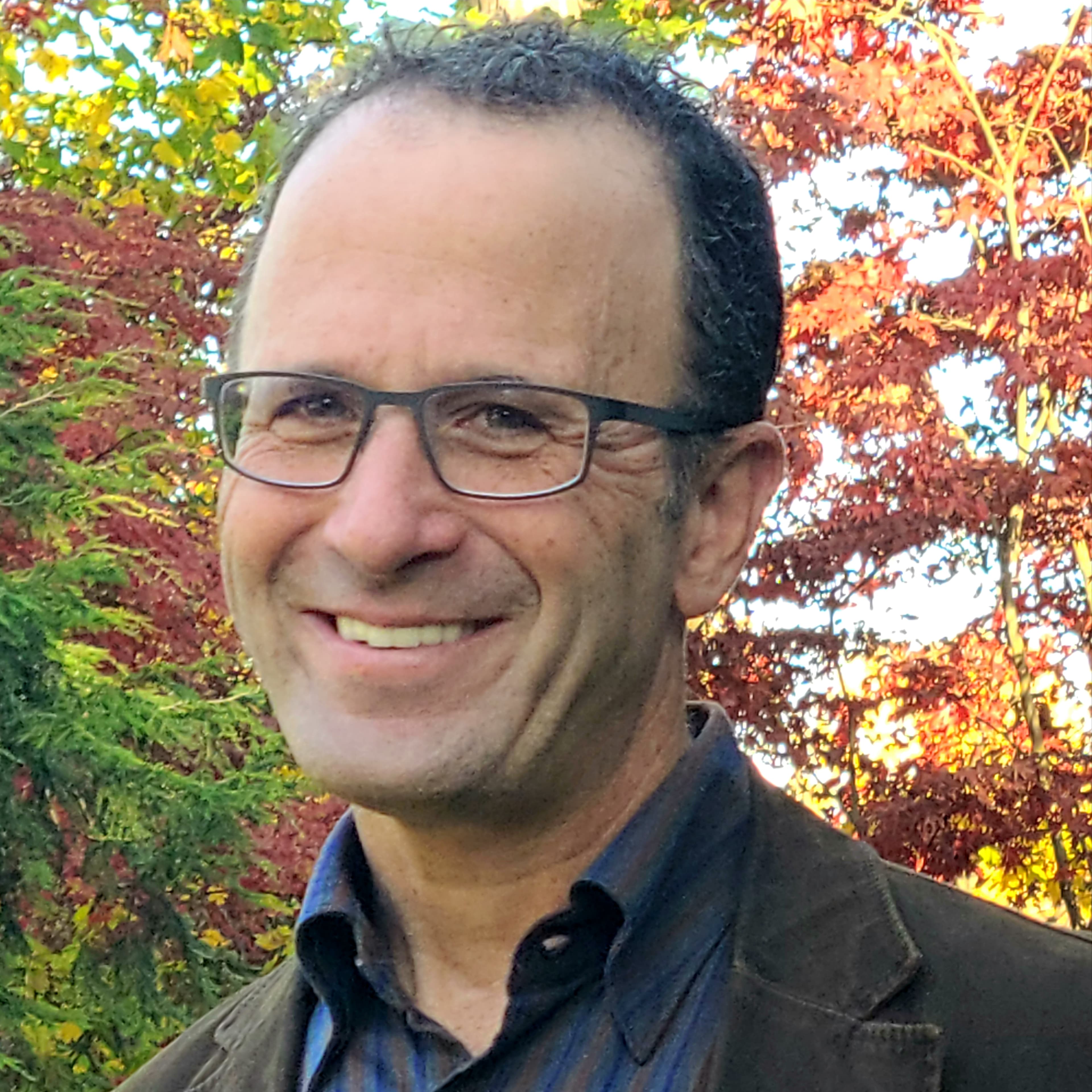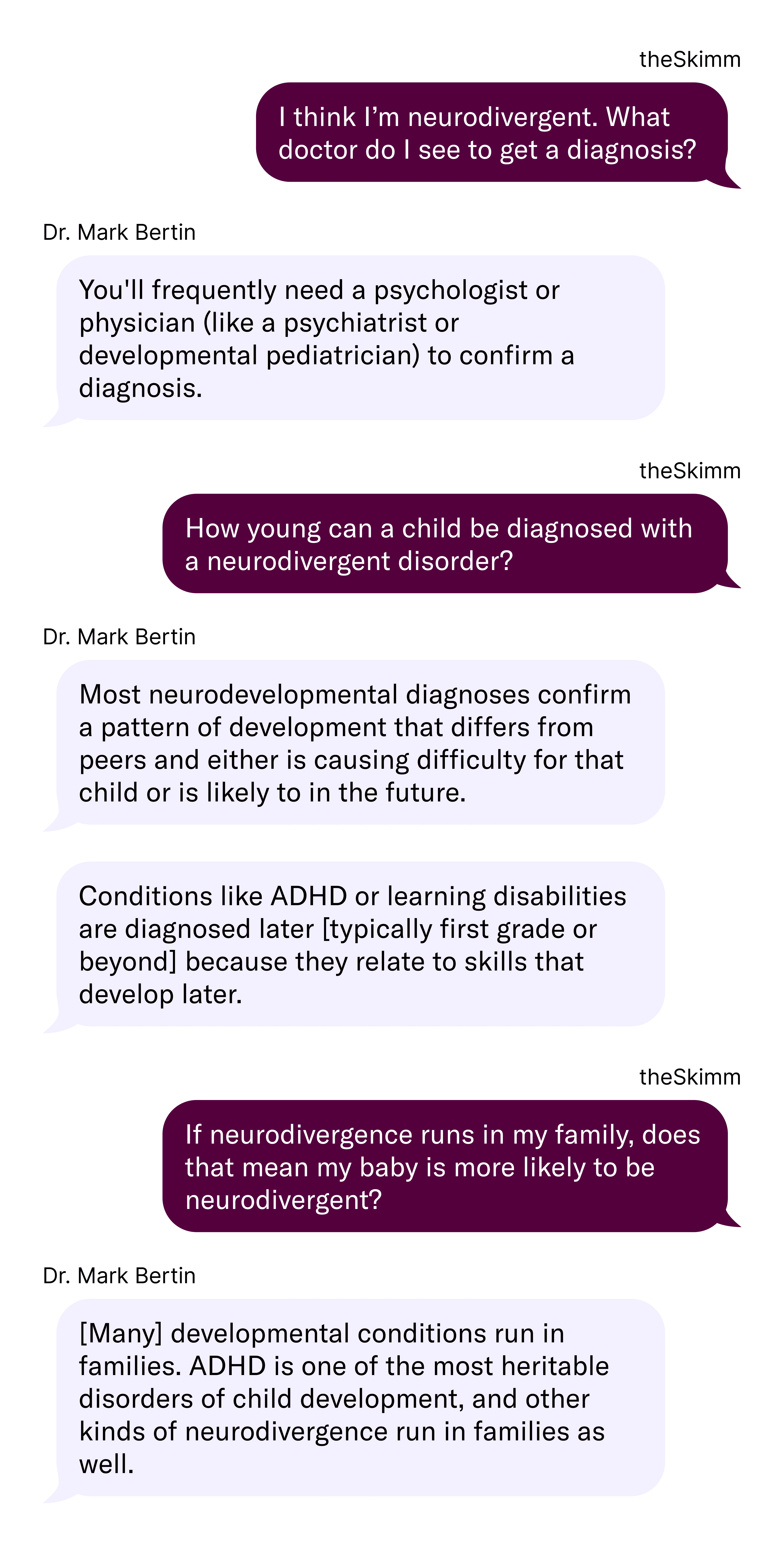This week’s newsletter is all about the neurodiverse brain. Because it just hits different. We talk about getting diagnosed, overcoming challenges, and representation (which, spoiler: needs work).
We also collaborated with our colleagues over at Skimm Parenting to help you navigate neurodiversity within your family. If that sounds like you, sign up for Skimm Parenting and check your inbox tomorrow night.

Neurospicy headlines that deserve your attention.
When you have a sensory processing disorder, doing anything in public can be a nightmare. These companies make things easier. Dim the lights, please.
Take it from Bruce Willis's daughter — a later-in-life diagnosis can be life-changing. Meanwhile, Travis Barker's son is destigmatizing tic disorders.
Trauma disorders aren't always classified as neurodivergent. One expert explains why that needs to change.
"Love on the Spectrum" gets a lot of love on social media...but not as much within the autism community. Hopefully “Dinosaur” does better.
What do some high-achieving women with ADHD have in common? Crippling burnout and perfectionism, of course.

Stop Saying You Have OCD — Unless You Actually Do
The world can be an isolating place with neurodiversity, but social media has become a much-needed source of conversation and community. Just because someone doesn’t meet every criteria of a disorder doesn’t mean their experience isn’t valid, says Sanjaya Saxena, MD, a psychiatrist at the International OCD Foundation. Social media can be a helpful self-discovery tool for those who fall in that gray area, says Sasha Hamdani, MD, a board-certified psychiatrist.
Others think social media has gone too far — to the point where people self-diagnose or use neurodevelopmental disorders to label their “quirky” personality traits. It’s a problem, says Hamdani.
When neurotypical people misuse neurodivergent terms
Neurodevelopmental disorders “have definitions, and those definitions are meaningful,” Saxena says. They highlight when disorders start causing distress, and open the door to support, medications, and accommodations for those who need them.
Using ND terms to describe a neurotypical experience or incorrectly saying you have a disorder can undermine the severity of the disorders, Saxena says. “I've heard people [say] ‘My OCD helps me.’ And most people with OCD would never say that it helps them. It causes tremendous distress.” Misinformation can also lead people to try medications or supplements for a disorder they don’t have, which can be harmful to their health, says Hamdani.
Your Move
Do your research (beyond TikTok) and get evaluated. ADDitude and the American Psychiatric Association are good starting points. There’s no harm in wondering if you might be neurodiverse and experimenting with lifestyle changes, says Hamdani. But if you want an official diagnosis, you’ll need to see a clinician. (More on this in Ask an Expert.)
Be mindful of your words. Avoid using ND terms to describe your neurotypical personality. Examples: OCD to describe the need for cleanliness, ADHD for a short attention span, or bipolar disorder for mood swings. Instead, be specific about what you mean.
Arm yourself with responses. You don’t have to explain your brain, but it can be helpful to have some scripts in your back pocket when someone makes an ableist comment.

Last week, we asked you to vote on a question you’d like answered. The Skimm Parenting team asked their audience, too. This week, we’re answering the winning question from both newsletters.
FEATURED EXPERT:

Mark Bertin, MD
A board-certified developmental behavioral pediatrician

PS: This interview was edited for length and clarity. Sign up here if you want more from Skimm Parenting.
skimm beta
theSkimm helps you tackle your to-do lists, whether you're refinancing your loans or choosing a daycare for the first time. We talk to experts and real women to empower you to make decisions faster and with more confidence. Check out our guides to get started.
PS: Your feedback makes a big impact. Let us know what you like, what could be improved, and most importantly, if we helped you get sh*t done. Share your thoughts.

In case it needs to be said…raising a kid is hard. And having a neurodiverse family can make it harder. Enter: The special edition send of our Skimm Parenting newsletter, all on neurodiversity.
It’ll cover “low-demand parenting,” tips for raising neurodivergent children, and more. Subscribe here and check your inbox tomorrow night.


"Assume that I can"
The tagline for a Down syndrome awareness campaign that challenges ableist beliefs of what they can do. Which is…anything.
Photos by iStock, Mark Bertin, MD
Design by theSkimm
This content is for informational and educational purposes only. It does not constitute a medical opinion, medical advice, or diagnosis or treatment of any particular condition. Always seek the advice of your physician, mental-health professional, or other qualified health provider with any questions you may have regarding a medical condition. Products you buy through our links may earn us a commission.
*PS: This is a sponsored post.
Live Smarter
Sign up for the Daily Skimm email newsletter. Delivered to your inbox every morning and prepares you for your day in minutes.